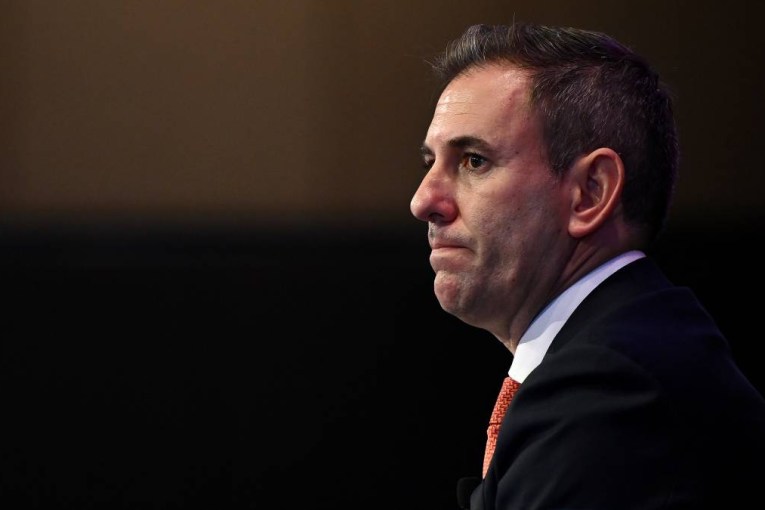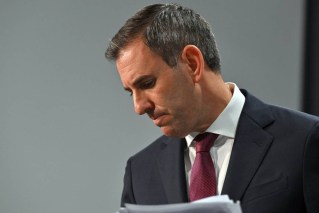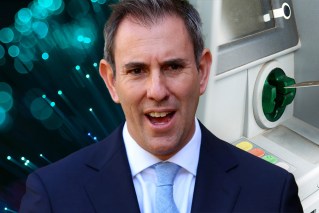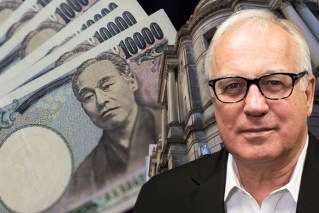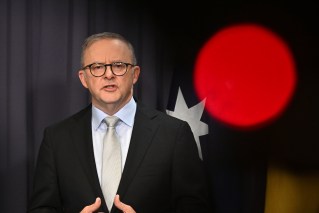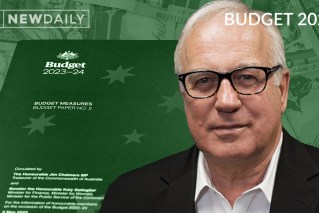Michael Pascoe: This is how govt can create a fairer, more sustainable Australia

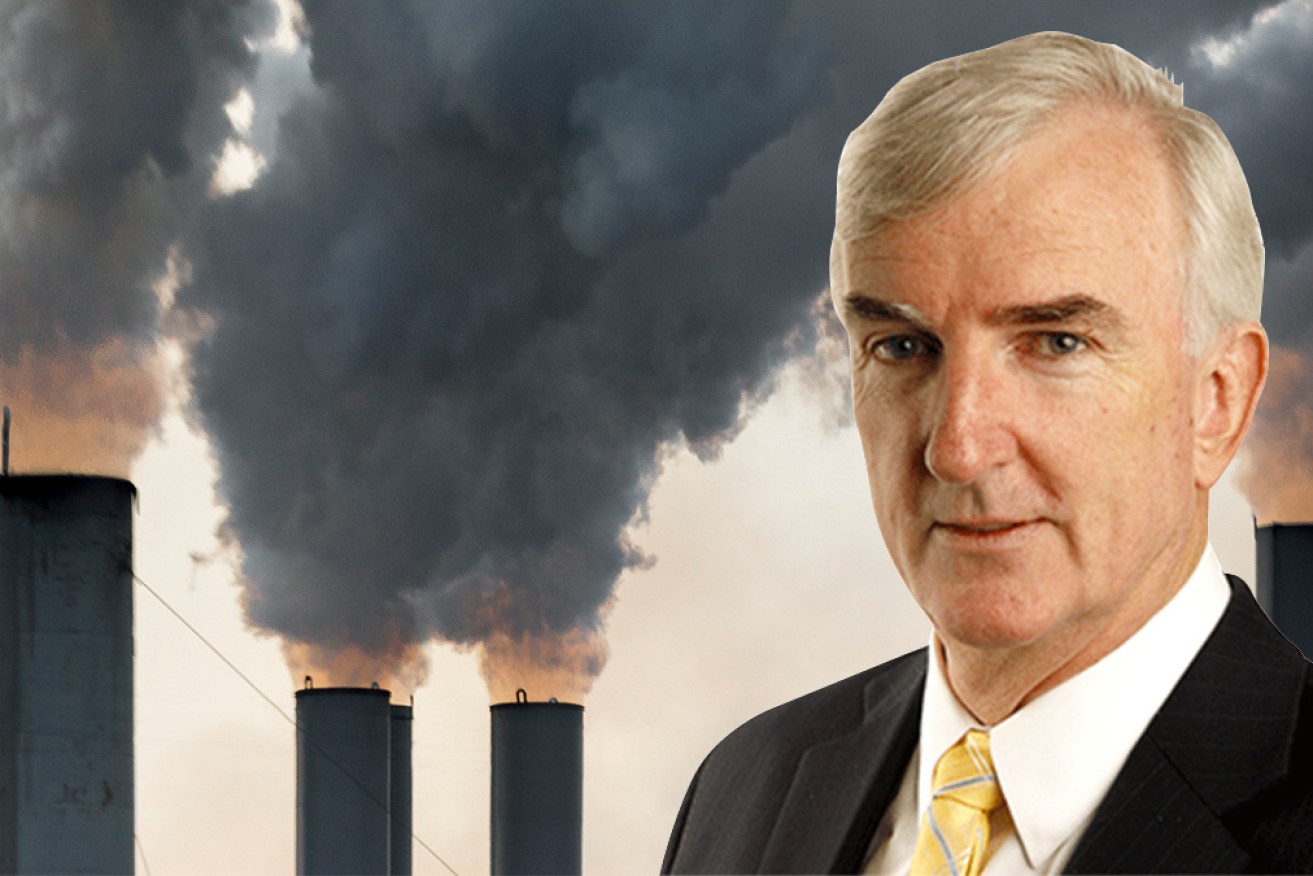
The introduction of a carbon tax should be the first step towards a more rational economy. Photo: The New Daily
Before the term “neoliberal” took over, there was “economic rationalism”. It’s time to bring it back and this time actually try it.
Economic rationalism received a bad rap. Economic rationalists were accused of all the neoliberal sins, all the problems of excessive privatisation, untrammelled deregulation, shrinking government, trickle-down economics, tax cuts for the wealthy, enemies of society. “There is no such thing as society,” Maggie Thatcher infamously said.
Economic rationalism was painted as the Australian equivalent of Thatcherism and Reaganomics, but it could mean a less dogmatic, more market-oriented way of not being economically irrational. And irrational economics was the hallmark of the old, unreformed Australia.
The problem was and is that we haven’t given rational economics a fair go. Bits of the idea have been grabbed to suit various ends while ignoring the whole.
The core of rational economics is price – measuring and pricing the value of things – along with a keen eye on the Law of Unintended Consequences.
There is no more pertinent example than pricing carbon pollution in our changed climate, but it stretches much further than that.
Climate and bushfires first
The 2019 election game of targeting the unknown total cost of Labor’s climate policies was economically irrational because it ignored the bigger question: what was the price of climate change and, therefore, what was the cost of not reducing emissions more?
Australia is only just beginning to price climate change as it adds up the bill for our climate-changed bushfires.
Pick a number, any number. Start with the government’s $2 billion bid and keep going beyond the cost of the obvious destruction and loss of life to foregone tourism earnings, increased insurance premiums, increased prevention and equipment costs, health impacts down the track from the smoke blankets, lost agricultural production and volunteer firefighters’ income.
You can easily hit $10 billion and then keep going.
Measuring all that is not easy, but it’s nonetheless the easy part. It’s the stuff we don’t yet measure that is hard. The half-billion animals reportedly killed and the many millions of trees – what were they worth?
If a tree burns in a forest, does anybody price it?
The bush does have value without being farmed, if only as a carbon sink. (Maybe I shouldn’t write “only”.)
The incinerated fauna – from koalas and kangaroos to bugs and beetles – also have value. We just haven’t worked out a way of adequately pricing them or the greater ecosystem yet.
(I drove Sydney-Sunshine Beach return on the Pacific Highway at the start of December. In 2000 kilometres, my windscreen claimed only one decent bug fatality; only once did I need to use a servo’s windscreen scraper. That’s not healthy.)
Clean water, clean air, sustainable ecosystems – all have massive value, obvious value to most people, but do we price them in our budgeting?
Make a fair fist of the cost of changed and changing climate and whacking a price on carbon – yes, a carbon tax – is an immediate no-brainer. That’s why the government doesn’t want to do it.
Fully price the impact of changed climate and you don’t scrimp on prevention costs.
You don’t ignore fire chiefs calling for a bigger aerial firefighting capacity and better equipment, as our governments did until it was too late. Their false economies have been exposed.
A different, less obvious example
Last year I recorded a podcast for the Monash University Business School with Professor Matthew Hall and Dr Paul Thambar who are trying to develop an accounting framework to measure the mutual sector’s true economic value.
“Profit doesn’t capture it and so what we’ve been trying to do in the last year is look at all the different ways that mutuals and co-ops have been experimenting with measuring the extra social purpose,” said Professor Hall.
The extra social purpose is not readily tangible, but it’s there when there is no incentive to play the customer off against the member or the shareholder because they are both the one.
When the public-company banks were being dragged through the Hayne Royal Commission, and when their share prices are suppressed by fines, legal costs and remediation, there is a contrasting economic value in the mutuals that didn’t have the profit-and-bonus-driven scandals.
The challenge for government is that pricing everything makes it hard to ignore consequent costs.
The failing “war on drugs”
Another example: A full appreciation of the cost of criminal recidivism would blow a hole in the usual “Law-and-Order” campaigns of tabloid media and reactionary politicians. We’d be trying much harder to rehabilitate than to simply punish, we’d be spending more on criminals and less on private security companies.
Similarly, an economically rational approach to recreational drugs would mean a change in conservative dogma. A premier would actually have to read expert recommendations and costings before dismissing pill testing out of hand.
The failed and failing “war on drugs” would be over, replaced with a health challenge, under real economic rationalism.
Pricing some presently unpriced things can be difficult, but we already price many difficult things. We routinely price human life – we just don’t talk about it much.
I wrote in another place three years ago that an Australian life was worth not more than $4.2 million, on average, according to the Department of Prime Minister and Cabinet.
Young lives were worth a bit more and we’re also prepared to pay more to avoid particularly painful and gruesome deaths.
The latter is a factor in our willingness to spend disproportionately large amounts trying to minimise the already very low risk of death by shark attack, while doing very little to counteract that much more successful serial killer, the common ladder.
Sharks killed just two of us the year before that article, but ladders averaged 23 deaths a year over the decade to 2012.
The statistics are useful in busting two of the more common myths regularly regurgitated by media: “Human life is priceless” and its close relative, “If it only saves one life, it’s worth it”.
The reality is that human life is constantly being priced – every time a road is designed, every time another safety regulation is mooted, every time an expensive new drug is considered for government subsidy, every time a court decides appropriate compensation for wrongful death. Abacuses of actuaries are constantly on the case.
If it was true that “life is priceless” and “if it only saves one life, it’s worth it”, all our cars would be speed limited to 30 kilometres an hour and every intersection would at least have traffic lights, if not a flyover.”
You could forget horse riding and rock fishing, bicycles would be kept to walking pace, and anyone attempting to mount a motorcycle would be shot to save them from falling off.
As we routinely price lost life, rational economics would also have us pricing saved and improved lives.
The role for AI
The much-promoted promise of artificial intelligence should make it easier. I’ve heard a presentation on how New Zealand is using data to prevent at-risk children from running off the rails, intervening early on with extra assistance to keep them out of the courts and break cycles of social welfare dependency.
Knowing both the cost and the counter-factual should provide the rationale for spending that ends up saving money – and that “society” thing.
“The application of AI can also support social outcomes such as improving social justice and reducing inequality,” reads part of the summary of a 2018 kiwi AI forum.
“The ability for personalisation of services, such as education and healthcare, in particular, will have a profound effect on New Zealanders’ lives. There is real potential for using AI to help ensure a fair, inclusive and thriving society throughout New Zealand.”
Powered by the measuring and targeting potential of AI, rational economics should do what the self-serving “neoliberal” ideologues are failing to do: use wealth to create a better, more sustainable Australia.
But first it would require a political class with an open mind and immune to the interests of lobbyists and donors and the narrow perceived immediate interests of their “base”.
If we are incapable of taking the first step of that most obvious thing, a carbon tax, we’re a long way short of rational economics.
